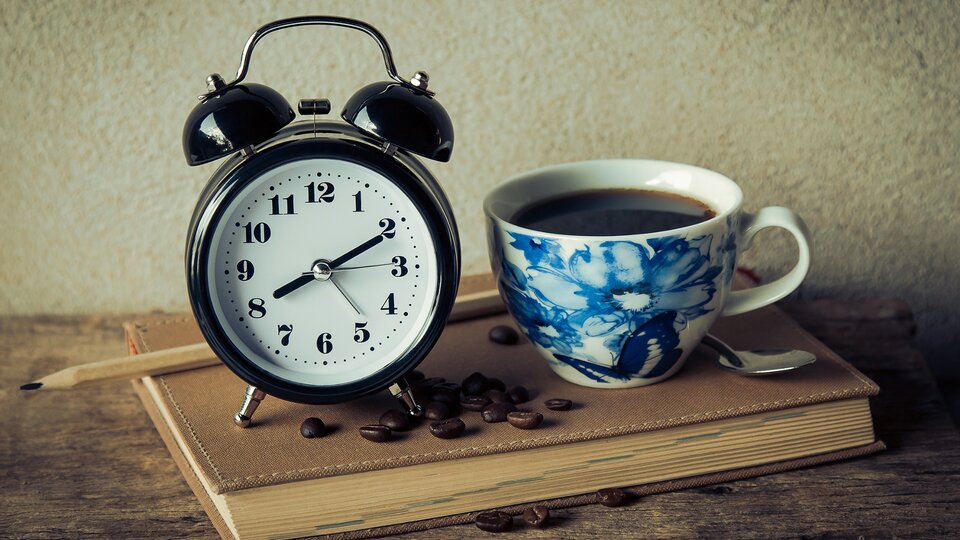Products You May Like
Some people experience the same changes in energy level from sunrise to sunset. This is a natural expression of time known as the circadian clock. These can influence appetite, energy, and behavior. There are many factors that influence one’s clock and the rhythms within it. With proper timing, one can improve the circadian rhythm to make the most of their days.
Circadian Synchronization
In life, there are factors that are out of one’s control. These can change the frequencies of a rhythm. Alterations in the circadian rhythm by external factors can lead to physiological (metabolic) and psychological (cognitive/mental health) consequences (1). These external stressors can impact sleep and energy levels. The clock can independently function, but it is commonly synchronized with environmental factors, such as the sun. What else can change someone’s personal rhythm?
The circadian rhythm is the foundation of one’s sleep cycle. Sleep quality and quantity can influence clock gene expression and sleep duration. The proof is in the hormone leptin, a satiety hormone in the gut microbiome. It’s usually activated by quality nutrition choices, but it can cause a ripple effect on the circadian rhythm. Low leptin levels can decrease sleep quality and duration (1).
Disrupting the sleep/wake cycle by exposing the brain to light at the wrong time can cause misalignment with the circadian clock. Other external factors include sun exposure, light-emitting devices, and social jet lag (2). This applies to night-shift workers and nocturnal lifestyle followers. With an understanding of time management, how can it be fueled?
Feeding Window
Humanity has gone from a species of hunters and gatherers to a species of buyers and consumers. As such, people eat more throughout the day simply because it’s more convenient now to do so. The reward outweighs the work. Overconsumption of food disrupts the function of the gut microbiota, which in turn disrupts the circadian rhythm.
One way to reboot this rhythm is through intermittent fasting. This feeding style regulates hormones to improve energy metabolism. Irregular eating habits will change the gut microbiome (gut-brain axis). Eating outside of the natural feeding phase can disturb central clocks and the gut microbiome (3).
A feeding window earlier in the day is the most useful and natural for today’s lifestyles. This is when the metabolism is at its most efficient for digesting and utilizing the food (1), especially carbohydrates and protein. Eating these foods at the start of the day will increase body temperature. A carbohydrate source will warm up the gut. Proteins will help the body recover from the fast. The more time the gut is given to digest food, the more efficiently the vitamins can be metabolized.
Carbohydrates can improve the sleep cycle too. They assist in melatonin activation in the evening. As the day’s temperature cools down, so can the body. This can activate the parasympathetic nervous system after working all day burning off the consumed foods. This results in reduced heart rate and blood pressure (2). Intermittent fasting can ‘reset’ one’s clock. How can athletes combine exercise with a fasting routine?
Training Time
Our ancestors were highly active in their mornings, hunting and gathering for their first meal. It would be safe to assume that a morning workout would be probable. This does not apply to everybody.
Some people want to lose weight. In this case, combining an early feeding time with fasted exercise will create the best metabolic improvements (4). The transfer from glucose to lipids for energy will burn more fat. Some may even find improvements in their cognition and willpower.
As for practicing athletes, training in the afternoon and evening hours are a better fit (4). This is when the core body temperature is at its maximum. This is determined by the peripheral muscle clock. This clock manages the energy levels of the skeletal muscle cells throughout the day. This is supported by having enough fuel (or carbohydrates) to heat the body. Therefore, athletes can expect better performance later in the day with enough carbohydrate support.
After a day of eating and moving, the best way to recover is through sleep. This process allows the clock to start all over again for another day.
Tune Into Your Rhythm
Circadian clocks influence a myriad of aspects in daily life. From food intake, nutrient absorption, and gut function (4), it’s all on an internal timesheet. If it feels off, there are habits that can be changed to improve one’s circadian rhythm. An earlier bedtime, breakfast, or workout can make a giant difference in the way someone carries themselves for the rest of their day. On the other end, putting the phone away and deciding against the midnight snack can make for a better night’s rest. It’s all in the timing.
Works Cited
